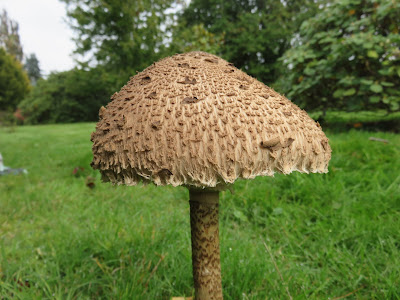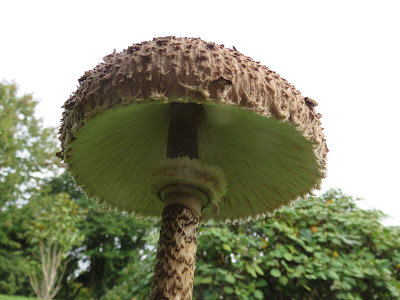Emmetts Garden
Wikepedia :
Emmetts Garden was open farmland until 1860 when the present house was built. The name 'emmett' is a local word for ant and refers to the giant anthills that covered the area until the 1950s. The house and land was purchased in 1890 by Frederic Lubbock, a banker and passionate plantsman. Lubbock's elder brother was John Lubbock, 1st Baron Avebury, coincidentally a world expert on ants, which may have influenced his decision to purchase the property.
The gardens were initially laid out between 1893 and 1895 under the influence of Lubbock's friend William Robinson in the fashionable Edwardian style popularised by Gertrude Jekyll. The shrub garden was added later in 1900-1908.
After Lubbock's death (1927), the estate was acquired by an American geologist Charles Watson Boise. He made various alterations to both house and garden but retained the original character of the gardens.
In 1964 Charles Boise bequeathed Emmetts to the National Trust.
The Rock garden was looking quite good...
...but the Rose garden was definitely past its best albeit there were a few bees around.
Unfortunately this was the view over the Weald towards Bough Beech Reservoir - very misty.
However we did see some fascinating mushrooms on the lawn in the South Garden.
We decided to go to Knole via Ide Hill - St Mary's Church was built in 1865 and is the highest church in Kent according to Wikepedia.
An attractive timber boarded House on the green.
And so to Knole.
Wikededia:
Knole is one of England's largest houses, the National Trust
attribute a possibility of its having at some point been a calendar house which
had 365 rooms, 52 staircases, 12 entrances and seven courtyards. Its grade I
listing reflects its mix of Elizabethan to late Stuart structures, particularly
in the case of the central façade and state rooms. The surrounding deer park
has also survived with little having changed in the 400 years since 1600,
although its formerly dense woodland has not fully recovered from the loss of
over 70% of its trees in the Great Storm of 1987.
The deer were quite approachable.


















No comments:
Post a Comment